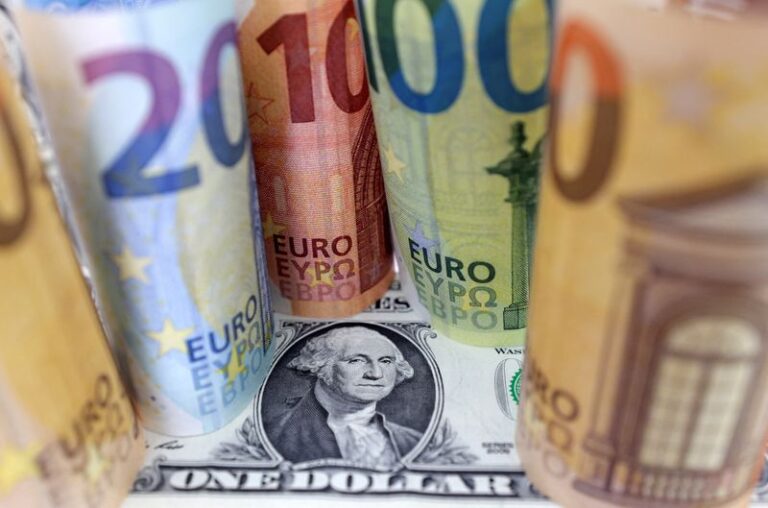By Kevin Buckland
TOKYO (Reuters) – The dollar fell on Tuesday, extending the previous day’s losses against the euro and sterling, as market nervousness over the risks of a far-right French government eased .
The U.S. currency failed to benefit from rising Treasury yields overnight as investors await a key retail sales report and comments from Federal Reserve officials to better gauge the timing and pace reductions in interest rates.
The Australian dollar has hovered near the middle of its trading range over the past month, with the Reserve Bank of Australia seeing rates hold steady later in the day.
The U.S. dollar index, which measures the currency against the euro, pound sterling and four other major currencies, fell slightly to 105.26 in early trading in Asia, continuing its decline from the highest Friday’s one-and-a-half month high at 105.80.
The rise in the index was mainly due to a sharp sell-off in the euro, after French President Emmanuel Macron called early elections last week in response to the crushing of his ruling centrist party by the National Rally eurosceptic of Marine Le Pen during the elections to the European Parliament.
“It is becoming clear that a Parliament without a majority is the basic market scenario, and calmer minds would say that a government involving Le Pen’s RN party would not risk shaking things up too intensely,” said Chris Weston, research director at Pepperstone.
“Le Pen has a presidential election to win in 2027, and that can only happen if the party earns the respect of the bond market.”
The euro gained 0.04% to $1.0738, adding to the previous session’s 0.26% rise. The British pound gained 0.06% to $1.2712.
The dollar was little changed at 157.66 yen.
The greenback was pulled in both directions, with subdued US inflation figures contrasting with a generally hawkish stance from Fed officials at last week’s policy meeting, when they cut to a a previous median forecast of three-quarters of a point for rate cuts this year.
Philadelphia Fed President Patrick Harker revealed Monday that he was in the single-cut camp, but left the door open to changing his mind based on available data.
A long list of Fed officials will take the podium at various locations later today, including Susan Collins of the Boston Fed and Thomas Barkin of the Richmond Fed.
Well before that, the Reserve Bank of Australia is largely expected to keep rates unchanged for a fifth straight meeting on Tuesday, with the majority of economists polled by Reuters forecasting a first cut in the fourth quarter.
“Financial markets today price in almost no chance of a change in the Reserve Bank of Australia’s policy rate (and) we agree,” Kristina Clifton, an economist at the Commonwealth Bank of Australia, wrote in a note.
“Unless there is a material change in the post-meeting statement, we expect the RBA announcement to have no material impact on the AUD.”
The Aussie added 0.08% to $0.66175. New Zealand’s Kiwi dollar also rose 0.08% to trade at $0.6136.
(Reporting by Kevin Buckland; Editing by Shri Navaratnam)


